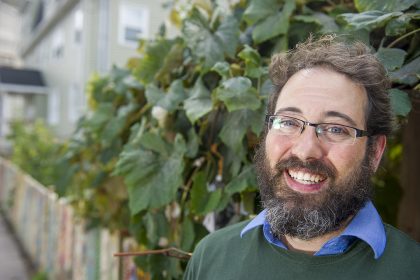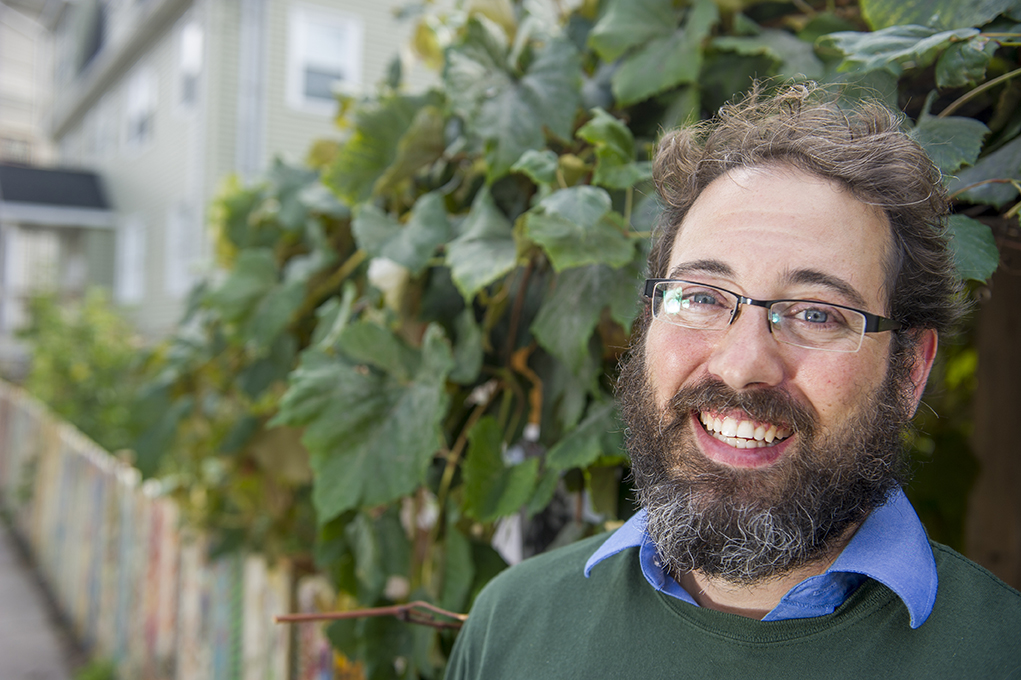
 I am white, and yet I have never self-identified as “white.” When asked about my identity, I have often used the shorthand term Pizza-Bagel – that oddly appealing mixture of the Jewish bagel with the Italian tomato sauce and cheese. Yet the tomato, originally a “New World” crop, was appropriated by the Italians, while the bagel originated from Polish gastronomy and was adopted by the Jews. Indeed, I never thought much about my Scottish ancestry, until I married a Celtic lass who pointed out that I am in point of fact a deep-fried pizza bagel. All of this highlighting a basic fact of cultural hybridity, that culture is living and always fluid and evolving, and that human societies have continuously traded ideas, cuisine, music, etc., while absorbing, blending, and innovating.
I am white, and yet I have never self-identified as “white.” When asked about my identity, I have often used the shorthand term Pizza-Bagel – that oddly appealing mixture of the Jewish bagel with the Italian tomato sauce and cheese. Yet the tomato, originally a “New World” crop, was appropriated by the Italians, while the bagel originated from Polish gastronomy and was adopted by the Jews. Indeed, I never thought much about my Scottish ancestry, until I married a Celtic lass who pointed out that I am in point of fact a deep-fried pizza bagel. All of this highlighting a basic fact of cultural hybridity, that culture is living and always fluid and evolving, and that human societies have continuously traded ideas, cuisine, music, etc., while absorbing, blending, and innovating.
Still, in our highly unequal and stratified society, I was born at a time when an American Mutt like myself can without fear or effort pass as white with all the privileges that entails (it was not so easy for my ancestors). I was also taught that how we behaved at home was “too ethnic” to be tolerated in mainstream settings – my mom told me that Grandpa Joe decided to ditch his Italian language and extended family to become as Waspy as folks on TV. As a swarthy Mediterranean white person, I grew up thinking the American Dream was for me because my immigrant grandparents were refugees while my parents were now professionals.
I suspect that one reason many white Americans have a hard time reconciling with their privileges is that they don’t identify their own family history with that of “white America” – even when society defines them that way. The language we use to discuss race makes it hard to reconcile with history. Without reconciliation with our history, we will not expand our solidarity and be able to come together to fight for justice. Facing into our histories requires blowing up constructed categories of black and white. In doing this we do not cast aside the first part of the discussion on the peculiar institution of race in America: we must still acknowledge America’s unique historical context and the pervasive inequality as manifested in the Racial Wealth Gap, and the many other ways of measuring and demonstrating that black and white America still exist such that we are in no way a post-racial society.
I bring this all up to help explain why I believe that transforming our identities is at the core of the work needed to transform our industrial food system to a sustainable one rooted in racial justice. The New England Food Vision suggests a dietary shift that for many of us raised in fast food nation would be radical. A serious commitment to creating a sustainable regional food system that is equitable requires the “3 Rs”: Reconciliation with our history of injustice, collectively facing the truth; Reparations that address how the past hasn’t gone anywhere, but remains with us now; and, Regeneration to heal ourselves, our communities, and the land.
If we are serious about creating an equitable planet in which future generations thrive, then Americans must change not only their lifestyles, but especially in an age of brand loyalty, we must transform our very sense of self. Confronting and transforming American privilege is something we know needs to occur, as just one example Americans constitute 5% of the world’s population but consume 24% of the world’s energy. All Americans, white, black, immigrant or otherwise, are implicated in this global inequality and the ongoing violence needed to maintain it. As a note of hope, if we transition to regional, agroecological food-systems, as proposed by Food Solutions New England, we will dramatically reduce American over-consumption of the world’s resources.
As we do this work, it is important to ask, when in human history have a people of privilege surrendered their privileges without confrontation and struggle? I can think of no example. Furthermore, past struggles succeeded when large numbers of people joined in solidarity against entrenched power. If we are to transform the industrial food system that is destroying the life support systems of this planet, then we need to come together and be united.
One of the fundamental challenges for joining together to transform American privilege is the reality of how race is coded in America. Race in America is actively constructed around the binary of black and white – and this construction entails political, social, and cultural dimensions, effectively assigning a “first class” and “second class” citizenship. Patently unjust and a violation of the divinity of all human beings, race is not about how we choose to identify – we are assigned our categories.
And throughout American history race is a tool to divide people; and as Bernie Sanders notes, it is a tool still very much in use:
“The Donald Trumps of the world divide us up, [and] if we do not allow them to divide us up by race, by sexual orientation, by gender, by whether we were born in America or whether we are immigrants—when we stand together as white, black, Hispanic, gay, straight, women and men—when we stand together and demand that this country works for all of us rather than the few, we will transform America.”
Different aspects of identity are evoked under varying social and political pressures and a person can simultaneously identify with their local sports team, their undergraduate alma mater, their gender, their religion, their ethnic group, their generation, etc. As the scholar John Wood points out in an essay we wrote together, humans are not reducible to either the universal or the particular, we are dynamically multi-dimensional. In the United States, the fluidity of identity is often observed. After centuries of migration, many people hyphenate their identities: African-American, Italian-American, Jewish-American, Indian-American, etc. Some might feel most loyal to their hometown, then their state, then their geographic region, and finally identify as American, while others might see themselves primarily as American, not invested in any specific locale. Recently, due to popularization by the mass media, some Americans identify as part of the Democratic “blue-states” or Republican “red-states” illustrating how quickly identity can be constructed and deconstructed.
Reconciliation, though, requires moving beyond frameworks that reinforce our division in order to uphold the status quo. Reconciliation requires that we engage in the very personal and uncomfortable process of examining our story of self, of relearning who we are as we open to the truth and mourn. A nuanced discussion about why European-Americans are systematically privileged relative to Asian-, African-, Indian-, Hispanic-Americans requires that we connect our conversation to world history and an ongoing discussion of global inequality, using language that helps us all understand how my liberation is caught up with yours. This enlargement of identity, to recognize ourselves as brothers and sisters, is crucial for creating the power to build the new systems we want, systems that will repair injustice and regenerate life.
Orion Kriegman is the Director of Boston Food Forest Coalition, a non-profit community land trust for neighborhood “forest gardens”. These edible public parks engage hundreds of volunteers; host annual harvest festivals and community events; and grow relationships among neighbors, land and food.
Photo credit: Ann Hermes/© 2015 The Christian Science Monitor




